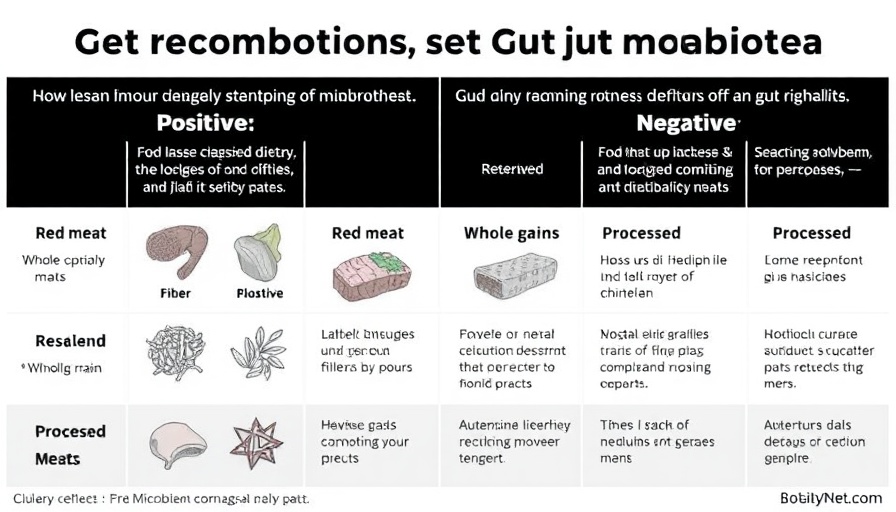
Exploring the Gut-Breast Cancer Connection
Breast cancer remains a significant health concern for women across the United States, with around 316,950 new invasive cases projected in 2025 alone. Surprisingly, emerging research highlights an intriguing connection between gut microbiota and breast cancer risk, an area that has largely remained underexplored. Recent findings from the National Health and Nutrition Examination Survey (NHANES) have shed light on how dietary practices that support healthy gut bacteria may contribute to lower breast cancer odds, unveiling new opportunities for health-conscious women to reassess their dietary choices.
What is the Dietary Index for Gut Microbiota?
The Dietary Index for Gut Microbiota (DI-GM) is a novel tool that assesses dietary intake based on foods that promote or inhibit beneficial gut bacteria. In a study involving over 6,000 women aged 20 and above, those with higher DI-GM scores—indicating a more favorable intake of microbiota-friendly foods—were found to have significantly lower odds of a breast cancer diagnosis. This is groundbreaking, considering that traditional risk factors such as age and genetic history have overshadowed the potentially pivotal role of diet and gut health.
Understanding the Mechanisms at Play
How exactly does gut microbiota influence breast cancer? Research suggests that the gut microbiome can modulate estrogen metabolism, an essential factor since many breast cancers are hormone receptor-positive. By impacting circulating estrogen levels, the microbiome may affect cancer cell proliferation. Furthermore, an imbalanced gut microbiome can lead to chronic inflammation, creating an environment conducive to tumor growth. This underscores the importance of maintaining microbial diversity through diet.
Key Findings from the NHANES Study
The NHANES study revealed that women with a DI-GM score of 6 or higher had a 33% lower likelihood of being diagnosed with breast cancer. This compelling evidence suggests that adopting a gut-friendly diet could be a proactive measure for women, particularly those at higher risk due to other factors such as age or family history. Notably, this association persisted across various demographics within the study, emphasizing the universal importance of gut health in cancer prevention.
Practical Tips for a Gut-Healthy Diet
- Incorporate Probiotics: Foods like yogurt, kefir, and fermented vegetables can enhance microbial diversity.
- Embrace Fiber: Foods rich in fiber, such as fruits, vegetables, and whole grains, feed healthy gut bacteria.
- Avoid Processed Foods: Reduce intake of sugar and processed foods, which can disrupt gut health.
- Stay Hydrated: Drinking plenty of water is essential for the overall health of the gut.
- Consider Supplements: Incorporating supplements such as Omega-3 fatty acids can support gut and overall health.
Looking Ahead: Future Research Directions
While the findings from this study are promising, further longitudinal and mechanistic research is needed to establish a clear cause-and-effect relationship between gut microbiota, dietary intake, and breast cancer risk. Exploring the complex interactions between gut health and cancer could offer exciting avenues for nutrition-based interventions in cancer prevention and treatment strategies.
Action Steps to Consider Today
For women aged 30 to 55 striving to enhance their wellbeing, acknowledging the connection between gut health and breast cancer could be pivotal. By adopting a diet that nurtures gut microbiota, not only could one work towards cancer prevention but also contribute to overall vitality. As knowledge around gut microbiota evolves, being proactive in dietary choices stands to empower women on their health journeys.
In exploring these dietary interventions, consider your own nutrition as part of a comprehensive approach to health. Looking into anti-aging supplements, longevity vitamins, and other nutraceuticals could complement your dietary strategies effectively. Let’s continue striving for healthier choices that may positively impact both gut health and breast cancer risk.
 Add Row
Add Row  Add
Add 




Write A Comment